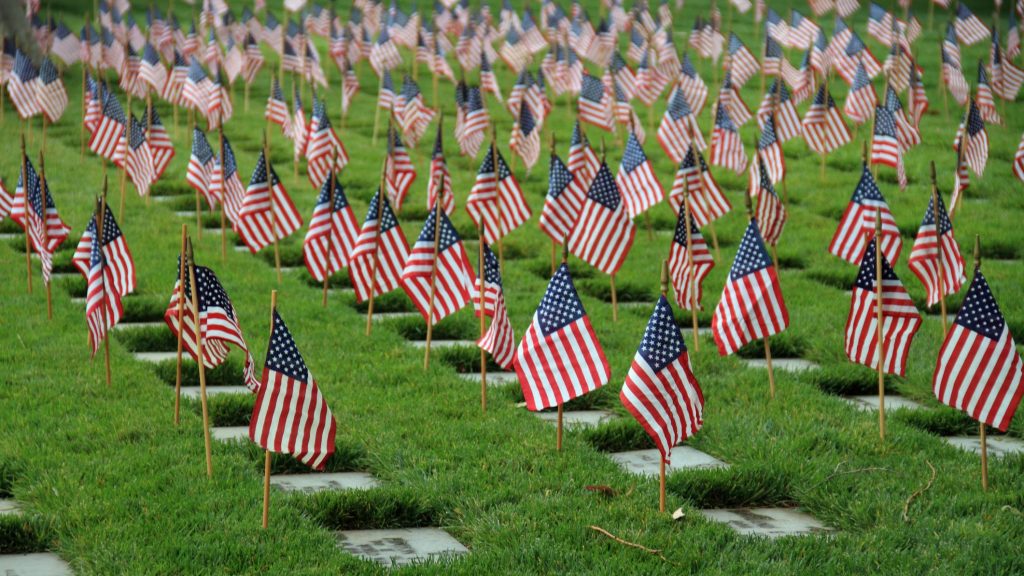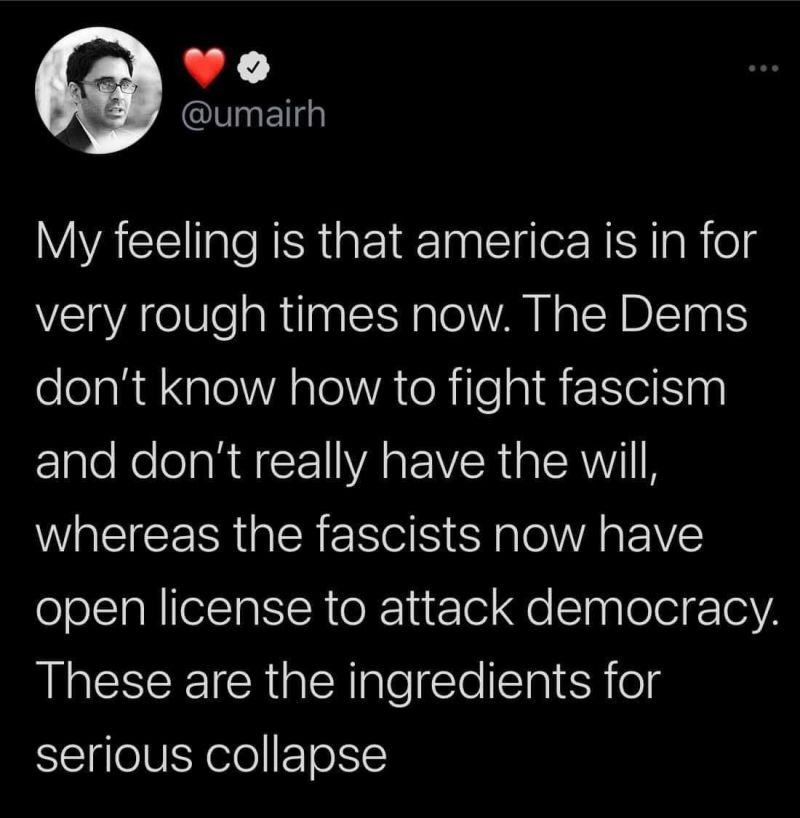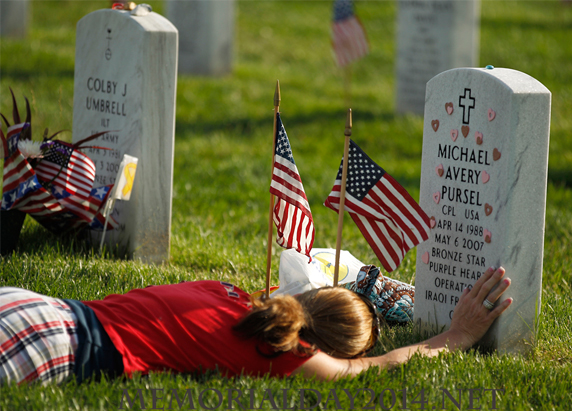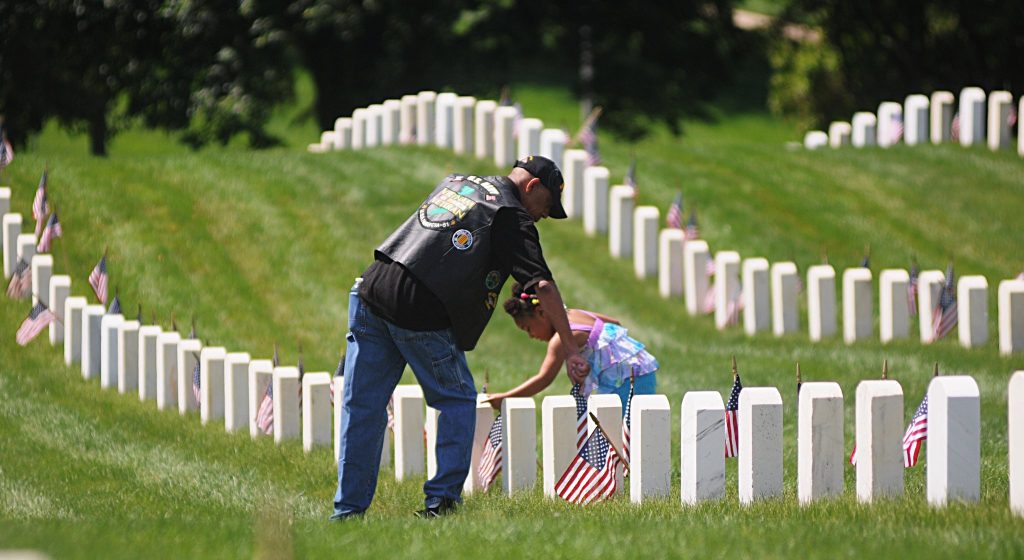
26 May 2025 – – Memorial Day is meant to be a day dedicated for honoring U.S. military personnel who have died while serving in the United States armed forces, a somber occasion to pause and reflect as a nation.
Many Americans don’t have any personal ties to its war dead, and so the remembrance part of Memorial Day is, for them, an abstraction.
The first-ever Memorial Day was anything but abstract. It was celebrated in 1868, three years after the Civil War, a national bloodletting that killed one out of every 50 Americans. Back then, everyone knew someone lost in the war. The original idea was simple: the day would be used to decorate the graves of the fallen.
It was proposed by John Logan, a retired Union officer, who understood how important it was to the dead that they not be forgotten. The truth is, anyone who has fought in a war, and had the good fortune to survive, understands this – because all of us have imagined our own deaths.
Thinking about our untimely dead is hard enough, but I am haunted by the holes those deaths rip forever in the social fabric: the discoveries not made, the problems not solved, the marriages not celebrated, the babies not born.
But for most Americans today, of all American holidays, Memorial Day is beset by the most contradictions. Officially, it is a somber holiday, one where we honor our country’s war dead, but it is also the holiday that marks the unofficial beginning of summer. Over this long weekend, many of us will pull out our barbecues, or travel to our local beach, or check out the latest blockbuster.
But for many of my friends in the military who served in Vietnam and in Iraq and in Afghanistan it is a the day for visiting the graves of friends buried at Arlington National Cemetery in Virginia.
Over 1.3 million Americans have paid the ultimate sacrifice for their nation. But that will be pretty much lost, forgotten today.
Memorial Day was originally called “Decoration Day”. As I noted above, it was established the day as a way for the nation to honor the graves of those who died in the Civil War, with flowers to be placed on military graves across the U.S. (the addition of flags came much later). May 30th was chosen as the day to observe because flowers would be in bloom nationwide. The date would change over the years as the Federal government rejiggered holidays. In 1971, Congress declared “Memorial Day” a national holiday, placing it as the last Monday in May. The day was expanded to honor all those who have died in American wars.
In December 2000, Congress passed and the president signed into law “The National Moment of Remembrance Act,” to ensure those who sacrificed their lives for the country were not forgotten. At 3 p.m. today (local time, wherever you are) Americans are asked to take part in the “National Moment of Remembrance”, a time to pause in a moment of silence to honor those who have died serving the U.S.

I will observe the day in my own way. But a sense of shame and dread envelopes me, as it has over the last few years as fascism has seized the country of my birth. Because although no longer a U.S. citizen, I find myself irrevocably tangled in America’s hopes, arrogance, and despair. I watched Donald Trump’s commencement speech at West Point on Saturday and was repulsed. Donald Trump poisoned virtue with his abysmal speech. His venom is of a lethal variety. American politics has been overwhelmed by the small, petty and brittle. Narcissists and sociopaths elbow each other for power and attention in a system that punishes integrity and rewards negligence, malice and corruption.
On this Memorial Day, the time of year that the U.S. should remember those who died while serving in the military, I cannot help but think that in today’s political climate, such honor has changed. Every year at this time I’m thinking of friends I’ve lost in and out of the military, and wondering how I feel about “dying in service of your country” these days. I see the disintegrating bonds among Americans and the weakening support of democratic norms that seems to percolate under its civil discourse.
There are few, if any, Americans now alive who lived during America’s most violent, brutal and deadly era. None remember the greatest cataclysm in American history that continues to define that nation in its present, and shape its future. Some say there is no racism in America, and that learning about the evils of slavery, oppression and racism threatens the future. They do a great disservice to the memories of the dead who fought an existential struggle to preserve the United States, abolish slavery and rebuild the meaning of freedom. There was no doubt about the cause for which they fought.
The writer Paul Shoffner (who often calls himself a “curator of quotes”) went through his quote library, and he posted the following ones on his blog.
The first three are from Mehmet Murat Ildan (translated from the Turkish):
“Let fascism find not even a single passage to power or else that poisonous snake will infiltrate into the every vital corner of the country and kill the future of the nation!”
“Earth is a heaven but man often creates many hells within this heaven and a fascist country is one of the hottest and the most suffocating hell amongst all those hells!”
“By being a fascist you lose your right to be called human being!”
“Tyrants have always some slight shade of virtue; they support the laws before destroying them” – Voltaire
“Unlimited power is apt to corrupt the minds of those who possess it; and this I know, my lords: that where law ends, tyranny begins” – William Pitt
“The struggle is so great that the triumph over fascism alone is worth the sacrifice of our lives” – Frederica Montseny
“Battling evil, cruelty, and injustice allows us to retain our identity, a sense of meaning, and ultimately our freedom” – Chris Hedges
“I don’t fight fascists because I’ll win. I fight fascists because they are fascists” – Chris Hedges
I understand all of these quotes, and I get where Paul is coming from. This weekend I re-read Benjamin Carter Hett’s “The Death of Democracy: Hitler’s Rise To Power” and one paragraph jumped out at me:
Few Germans in 1933 could imagine Treblinka or Auschwitz, the mass shootings of Babi Yar or the death marches of the last months of the Second World War. It is hard to blame them for not foreseeing the unthinkable.
Yet their innocence failed them, and they were catastrophically wrong about their future. We who come later have one advantage over them: we have their example before us.
Or The Guardian article from 2021 which I often quote, entitled “America is now in fascism’s legal phase“, which has even more import today. One paragraph:
The history of racism in the U.S. is fertile ground for fascism. Attacks on the courts, education, the right to vote and women’s rights are further steps on the path to toppling democracy. There comes a tipping point, where rhetoric becomes policy. Donald Trump and the party that is now in thrall to him have long been exploiting fascist propaganda. They are now inscribing it into fascist policy.
It has all come true. MAGA supporters and its embedded far right thugs refuse to see the threats of Trump as real because he assuages their fears with words of supposed authority. In practice, those words become repression of civil rights and outright prejudice.
But because those baser instincts resonate with his sycophants, who are principally transactional in their incivility, the “I’ve Got Mine and You Can’t Take It” MAGA mindset reigns supreme amongst the populace conflicted by how the true moral of their religion do not support the man, and whose claims of patriotism are falsified by their despise of the freedoms the nation is supposed to support.
The right-wing media propaganda machine pushes so many false narratives about things, just endless nonsense, they follow the mantra of Joseph Goebbels :
“If you tell a lie big enough and keep repeating it, people will eventually come to believe it”.
But that’s the thing.We have made it so easy for them. Yes, every American has a right to be angry and ticked off. It is natural. It is our life and times.
But what they do is say “boy, do we have a story that will make your blood boil!! ” We have allowed our modern society to be a social media driven society, our interactions incentivized and monetized for outrage. And it is exhausting for everyone.
And frankly, it is coming from all sides: the left, the right, the swifties and now even the young adult literature readers.
We are surrounded by and inundated with more speech than has ever existed in the history of communication. And it is all weaponized by professional outrage. Hunters of all stripes scouring the globe for graduation speech, snippets offhand comments during promotional tours, out of context, comedy bits, lame marketing ideas or any words and phrases they believe they can latch onto to generate monetized clicks.
Outrage is the engine of our modern media economy. And the Democrats and The Opposition are outgunned.

Erich Fromm, the German-American social psychologist and humanistic philosopher, wrote a lot about all of this. He was a German Jew who fled the Nazi regime and settled in the United States. Over the weekend I was re-reading a few chapters of his “The Anatomy of Human Destructiveness” and one paragraph made me think of the Democrats:
When Fascism came into power, most people were unprepared, both theoretically and practically. They were unable to believe that man could exhibit such propensities for evil, such lust for power, such disregard for the rights of the weak, or such yearning for submission. Only a few had been aware of the rumbling of the volcano preceding the outbreak.
Fascism gained power over men because of their blindness. A man cannot believe that he is about to be destroyed. The optimism of people standing on the edge of the grave is astounding.
Totalitarianism cannot renounce violence. If it does, it perishes. Eternal, ceaseless violence, overt or covert, is the basis of totalitarianism. But if it is true that man does not renounce freedom voluntarily, it is going to be a hell of a battle.
But this ain’t rocket science. The MAGA movement has always viewed Trump more as a weapon against their perceived enemies than as a messiah figure. No doubt Trump’s obnoxious personality and seeming impunity from consequences undergird his appeal to MAGA audiences, but mostly because they want to instrumentalize these qualities for their political ends. They enjoy his criminality when it seems useful to them, such as when Trump was trying to steal an election or illegally deport people they don’t like. His rallies draw crowds less because people care what he says – they don’t seem to really listen, anyway, which is why they don’t notice him babbling incoherently or praising fictional cannibal killers – but more for the typical fascist reason of wanting to display a show of force.
Eh, as H.L. Mencken said in 1926:
“No one ever went broke underestimating the intelligence of the American public”.

Michael Avery Pursel died serving during Operation Iraqi Freedom. He was 19. He died due to an improvised explosive device detonated near his vehicle during combat operations. Every year his niece visits his grave at Arlington National Cemetery.
But our feelings about these federal memorial holidays evolve through the years. I have spoken to many veterans who came home from Vietnam, thoroughly disillusioned with “American values,” who dismiss our current “celebrations” of F-15 flyovers, “God Bless America” singalongs, and stadium events singling out veterans for applause. As the decades have ground on, fewer and fewer people standing in solemn participation with these ritual events have had any military service of their own to fully understand them. There is the pity.
As noted by Andrew Bacevitch after he endured military “remembrances” at one more baseball game played on Memorial Day:
What a masterpiece of “contrived spontaneity”. Leaving spectators feeling good about their baseball team, about their military, and not least of all about themselves – precisely as it was meant to do. Cheap Pentagon p.r. exercises, along with the flag-waving mattress sales and “start of summer” alcohol-soaked barbecues. I respectfully decline to stand up, with thousands of other baseball fans, hand over heart, for the socially coercive playing of the religio-nationalist God Bless America, during the 7th inning break.
And a note on Andrew Bacevitch. He is a retired Army colonel and esteemed military and diplomatic historian. His books are brilliant. He served in Vietnam in the 1970s. He was a persistent and vocal critic of the U.S. occupation of Iraq, saying the conflict would be a catastrophic failure because the Bush administration had no understanding of the Middle East. His son, also an Army officer, died fighting in the Iraq War in May 2007.
My own feelings about Memorial Day have steadily changed since the post-9/11 wars in Afghanistan and Iraq and so many soul draining counterterrorism missions gave lie to America’s proclaimed “values”. As with Vietnam, the veterans of these conflicts participated in expeditions that most quickly saw were doomed, or worse – meaningless.
But they soldiered on, mostly out of their own self-respect and the respect of their battle buddies. But the butcher’s bill inevitably came due: a 2023 study showed that four times as many active duty service members and veterans died by suicide as died in battle since 9/11. This was a scourge that exploded in the wake of Vietnam and has never been solved, although the Veterans Administration keeps saying “we’re trying”.
And, yes. Cynic and skeptic that I am I do still worry about the disintegrating bonds among Americans and the weakening support of democratic norms that seems to percolate under their civil discourse. At various times, I’ve been depressed, angry or scared of what is happening over there. If you have been reading my posts, you know I am not hopeful. In the short history of mankind, all *republics* and all *democracies* have had a short shelf life. We fail to see the natural arc of human history. The arc of the moral universe does not bend toward moral progress and justice. Freedom, democracy, liberalism are mere blips on the screen of humanity. Autocracy, totalitarianism and dictatorships have long ruled the roost.
Yet many of us still value at least some of the sacrifices made in past, made for our future. My wish on this day is to continue to venerate – and tie myself to – that past, to identify myself as “American”, even if that name is now so tarnished given today’s geopolitical inferno.
Can America really hold onto a “government of laws, a government of hope”, and perhaps re-shape its tarnished identity? I have no illusions on that point. No, it cannot.
But today, at 3pm, my time, I am going to stop and take that “National Moment of Remembrance”, to pause in a moment of silence to honor those who have died serving the U.S. – men and women who really believed and gave a damn about their comrades and maybe about their country. And paid the supreme price for doing so.
And one final note.
We live in such a brutal, complex world because “not all of those we should recognize fit neatly into a box” (quoting from the essay below). As I began writing this, I remembered an essay I had shared with you a few years back on another Memorial Day. It it is by Kayla Williams, a former assistant secretary in the Department of Veterans Affairs, an Arabic linguist in the Army and deployed to Iraq, and author of a brilliant book “Love My Rifle More Than You” about her personal experiences during the war in Iraq. She captured so many thoughts racing through my mind today. I have permission to share it:
* * * * * * *
Who Should We Honor on Memorial Day?
Kayla M. Williams
For those of you who know your history, in 1866, four women placing spring flowers on the graves of Confederate soldiers at Friendship Cemetery in Columbus, Miss., noticed that the nearby graves of Union soldiers were barren. They took it upon themselves to decorate those, too.
Lately I have been thinking about those women as Memorial Day approaches. Their decision to expand the notion of whom they chose to remember lies at the heart of what Memorial Day should be about. For those women in Mississippi, the Union soldiers, enemies in a war that divided not only a nation but also families and left some 750,000 dead, also deserved respect and flowers.
But not all of those we should recognize fit neatly into that box.
Take, as an example, some of the first U.S. deaths in World War I: Edith Ayres and Helen Burnett Wood, two Army nurses killed by shrapnel when a naval gun exploded during target practice while they were traveling by Navy ship to Europe. They were Red Cross nurses who were inducted into the Army, serving without rank or commission, since women’s status as soldiers was not yet settled. They probably are not among those who spring to mind when we imagine American military deaths in that war, yet they made the ultimate sacrifice in service to the nation while on their way to save lives.
A more recent example, much closer to me, is someone I served with in the 101st Airborne Division. While I worked in signals intelligence in Iraq, my friend Alyssa Peterson worked in human intelligence. In 2003, near Mosul, she killed herself, and though her name is recorded on lists of those who died in Operation Iraqi Freedom, deaths like hers are often viewed differently from those in combat, perhaps because of the stigma attached to suicide.
And what of veterans who end their lives after they have returned? In 2020, more than 6,100 veterans died by suicide. Last year, Dean Lambert wrote in Military Times about the suicide of his son, Adam, a Marine who died a year after returning home from Afghanistan. “When I found him lifeless, wearing his desert combat uniform, clutching his dog tags in his left hand, there was no doubt he brought the war back with him,” Mr. Lambert wrote. Memorial Day, he argued, should be for “remembering not only the heroes who lost their lives from physical wounds, but those who also died fighting mental injuries they sustained on the same battlefields.”
How someone dies is not the only factor that influences how we honor our war dead. When matters, too. The Vietnam Veterans Memorial, better known as the Wall, is inscribed with over 58,000 names of Americans who died in or supporting combat or within 120 days of injuries or illnesses incurred in the combat zone.
It’s the 120 days that gets me. What of those who died years later from what they were exposed to in Vietnam? We now know that Agent Orange is associated with health problems, including cancer and Parkinson’s. An untold number of veterans have died of those service-connected conditions. Their names will not be inscribed on the Wall, though the Vietnam Veterans Memorial Fund is seeking to memorialize them in other ways.
Toxic exposures are not limited to those who served in Vietnam. My friend Kate Hendricks Thomas died of breast cancer last year; her doctors told her the cause was most likely the chemicals from burn pits that she was exposed to during her time as a Marine in Iraq. I will forever mourn and honor her, too, among our war dead this and every Memorial Day, whether or not her name is ever inscribed on a list of those killed in the global war on terrorism.
And how might we consider the long-term psychological or spiritual trauma that those who experience war so often suffer? I’m talking about those who died from substance use, excessive risk taking or the cumulative stresses of homelessness. Even if they were not killed in action, many no doubt were killed by action. Should we inscribe their names on war memorials as well? Their families’ grief, I promise you, is just as deep. Their wounds, though less visible, were as grievous.
Congress, for one, seems to be taking a more expansive approach to government responsibility for these long-term health consequences of military service.
Lawmakers recently expanded the Department of Veterans Affairs’ funding for suicide prevention programs. Congress also lengthened the list of health conditions presumed to be related to toxic exposures during military service, expanding benefits not only for veterans but also for surviving family members of those who died before these new benefits became law.
These widening notions of whom we honor, and how, are signs of progress — but they are just a start. After I came home from Iraq in 2004 and found myself a stranger in a country seemingly oblivious to war, I encountered a quotation from Gen. Douglas MacArthur that resonated with me deeply: “The soldier, above all other people, prays for peace, for he must suffer and bear the deepest wounds and scars of war.”
But today, for this Memorial Day, I wonder whether such a sentiment rings true.
I’m thinking about Ukraine, where Russian forces have tortured, raped and summarily killed men, women and children and have destroyed homes, hospitals, schools, power plants and churches. And Syria, where millions have fled their homes, spikes in poverty have led to hunger and a child’s life expectancy has declined by 13 years. And Sudan, where gun battles are taking place in residential neighborhoods, morgues are filling with bodies and the health care system is collapsing.
Such atrocities remind us that the cost of war is not borne solely by soldiers on the field of battle and that for too many, the field of battle is unavoidable. In Iraq, for instance, the United States lost 4,418 military personnel, and nearly half a million civilians died in the war and the eight-year American occupation.
These civilians did not volunteer. They did not sign up, as I did, nor were they drafted, like others whose names we inscribe on our war memorials. And yet they died just the same. Their families mourn just as deeply. How should we remember them? Can we make space in our hearts for them, too, this Memorial Day?
